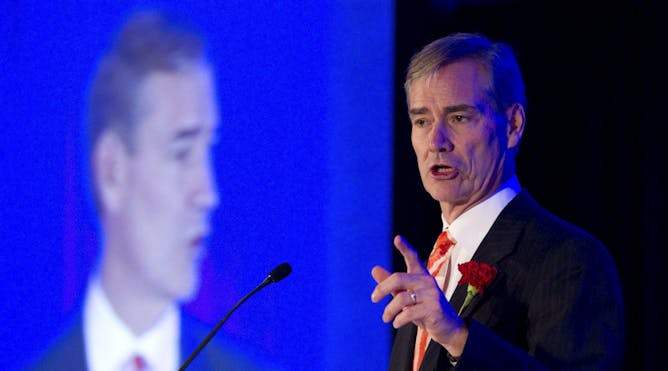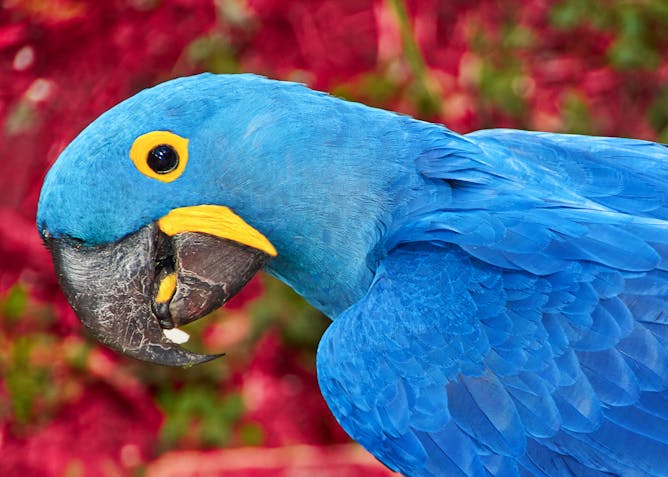|
It’s not often that CEOs are bold enough to take a very public stand that might be unpopular to a section of their customer base. But that’s exactly what Michael McCain, the CEO of Maple Leaf Foods, did earlier this week when he used his company’s Twitter account to condemn Donald Trump’s actions against Iran that ultimately led to the death of 57 Canadians – including family members of a Maple Leaf employee. Today in The Conversation Canada, Deborah de Lange of Ryerson University looks at McCain’s action and says it’s the stuff of real corporate
leadership.
As you head into the weekend, we also have these great reads for you today:
Regards,
|

Michael McCain, president and CEO of Maple Leafs Foods, speaks during the company’s annual general meeting in Toronto in April 2011.
THE CANADIAN PRESS/Darren Calabrese
Deborah de Lange, Ryerson University
Michael McCain has been criticized for maligning Donald Trump on the Maple Leaf Foods corporate Twitter account over Flight PS752. But strong leaders don't shy away from taking a stand.
|

The Garzweiler surface mine produced 35 million tonnes of brown coal (lignite) in 2017. Germany plans to phase-out coal-fired power by 2038.
(Shutterstock)
Matthew Hoffmann, University of Toronto; Steven Bernstein, University of Toronto
Plans to reduce emissions quickly are seductive but can stall. Climate initiatives should end dependence on fossil energy and pursue a path towards a more just and equitable society.
|

Spix’s macaw is now extinct in the wild. Conservation programs in Brazil maintain the last 70 or so individuals from this species.
(Shutterstock)
Arne Mooers, Simon Fraser University
While Hail Mary conservation efforts can pull birds back from the brink, an extinction wave still looms.
|

The archives of academic institutions can tell previously untold stories of eugenics. Universities can begin to undo oppressive legacies by opening them to artists and communities.
(Pakula Piotr/Shutterstock)
Evadne Kelly, University of Guelph; Carla Rice, University of Guelph
To confront colonialism, universities must open their archives and let communities see their pasts, eugenics and all.
|

Les bracelets connectés ont moins de précision qu'on pourrait le croire lorsqu'ils sont utilisés de certaines manières.
Getty Images
Katie Siek, Indiana University
Les gens n'obtiennent pas toujours la bonne information lorsqu'ils utilisent des moniteurs d'activité ce qui en poussent plusieurs à les abandonner... et nuit à la recherche.
|
Culture + Society
|
-
David Rowe, Western Sydney University
From Peter O'Connor waving the Irish flag in 1906 to rainbow colours at Sochi, athletes have always used the Olympics to share their politics.
|
|
Health + Medicine
|
-
Jean Twenge, San Diego State University
New research finds that the different ways boys and girls use digital technology might explain the discrepancy.
|
|
Politics
|
-
Graeme Gill, University of Sydney
Putin's proposed changes to the constitution appear to be limiting the power of the presidency. But his sights are set beyond 2024 when he'll no longer be president.
|
|